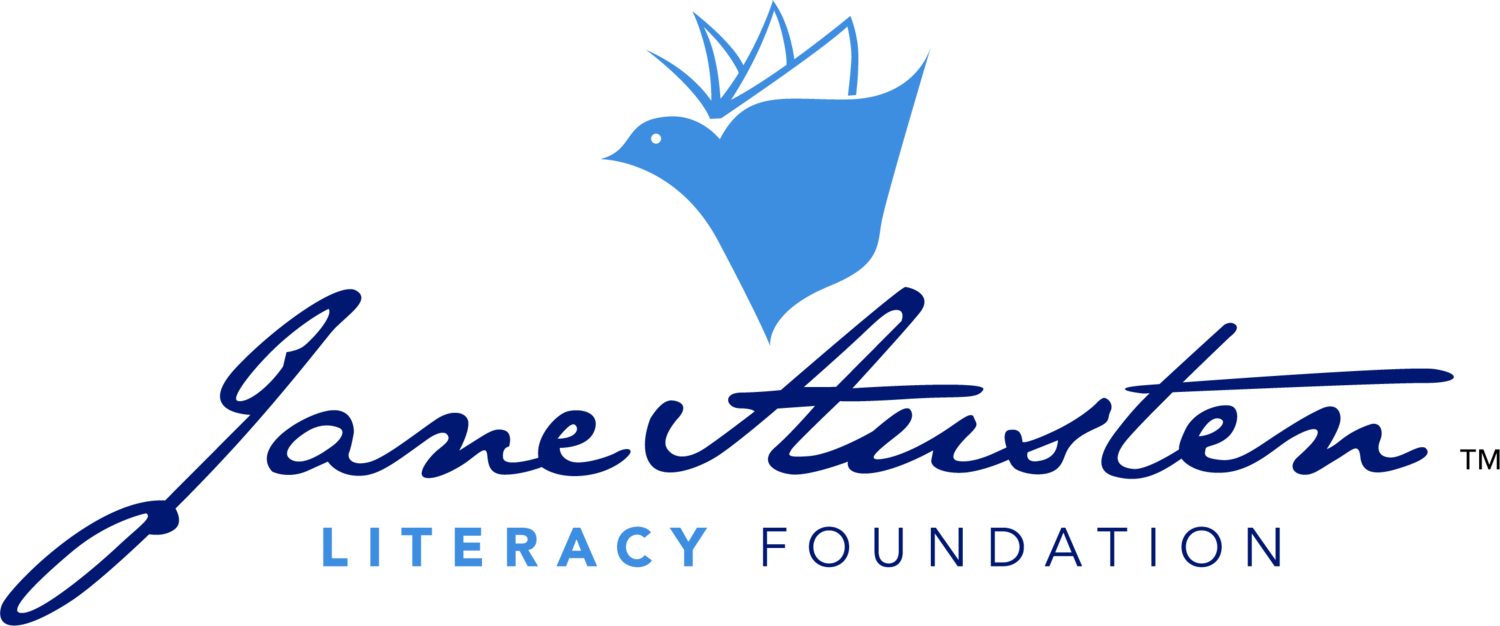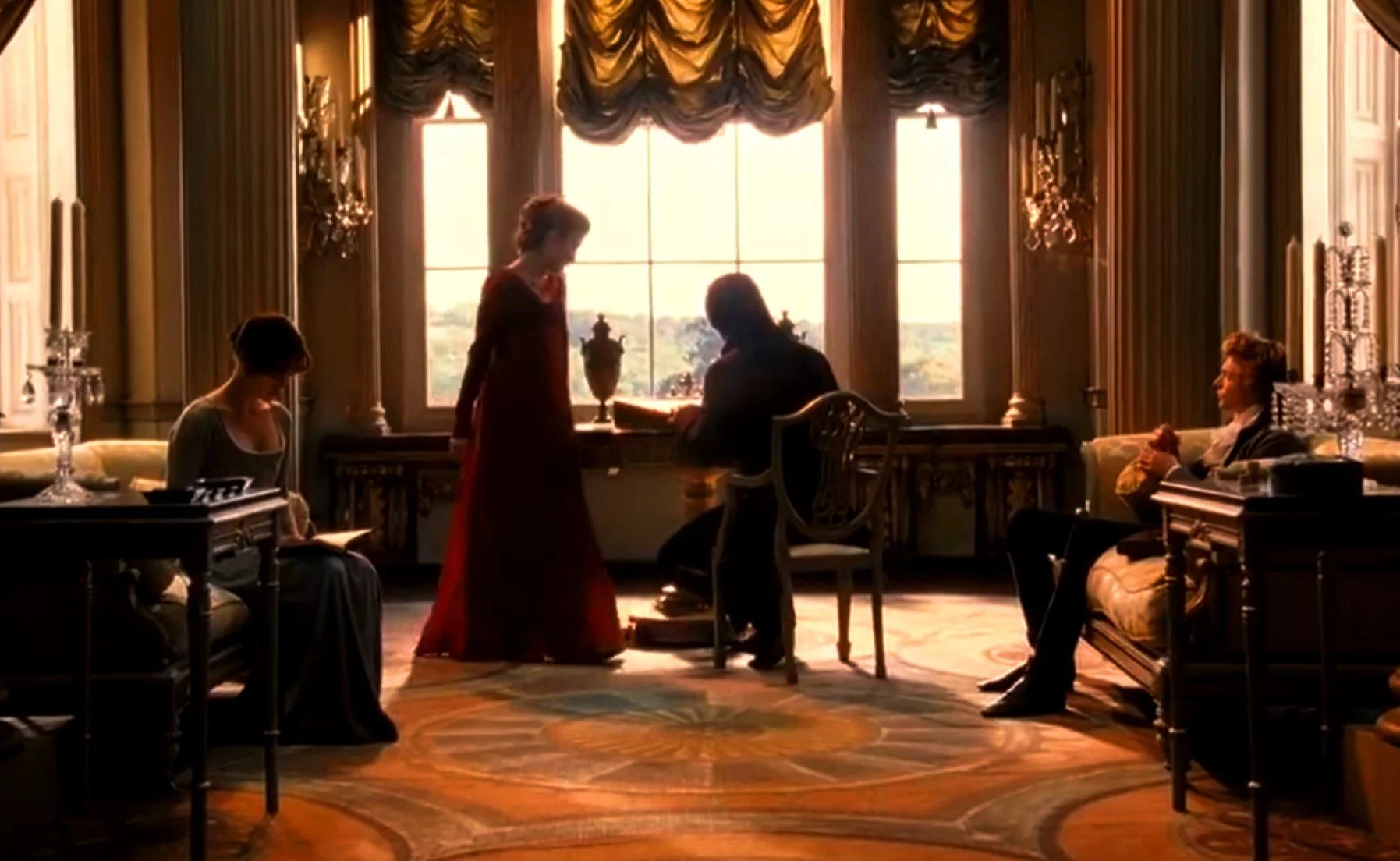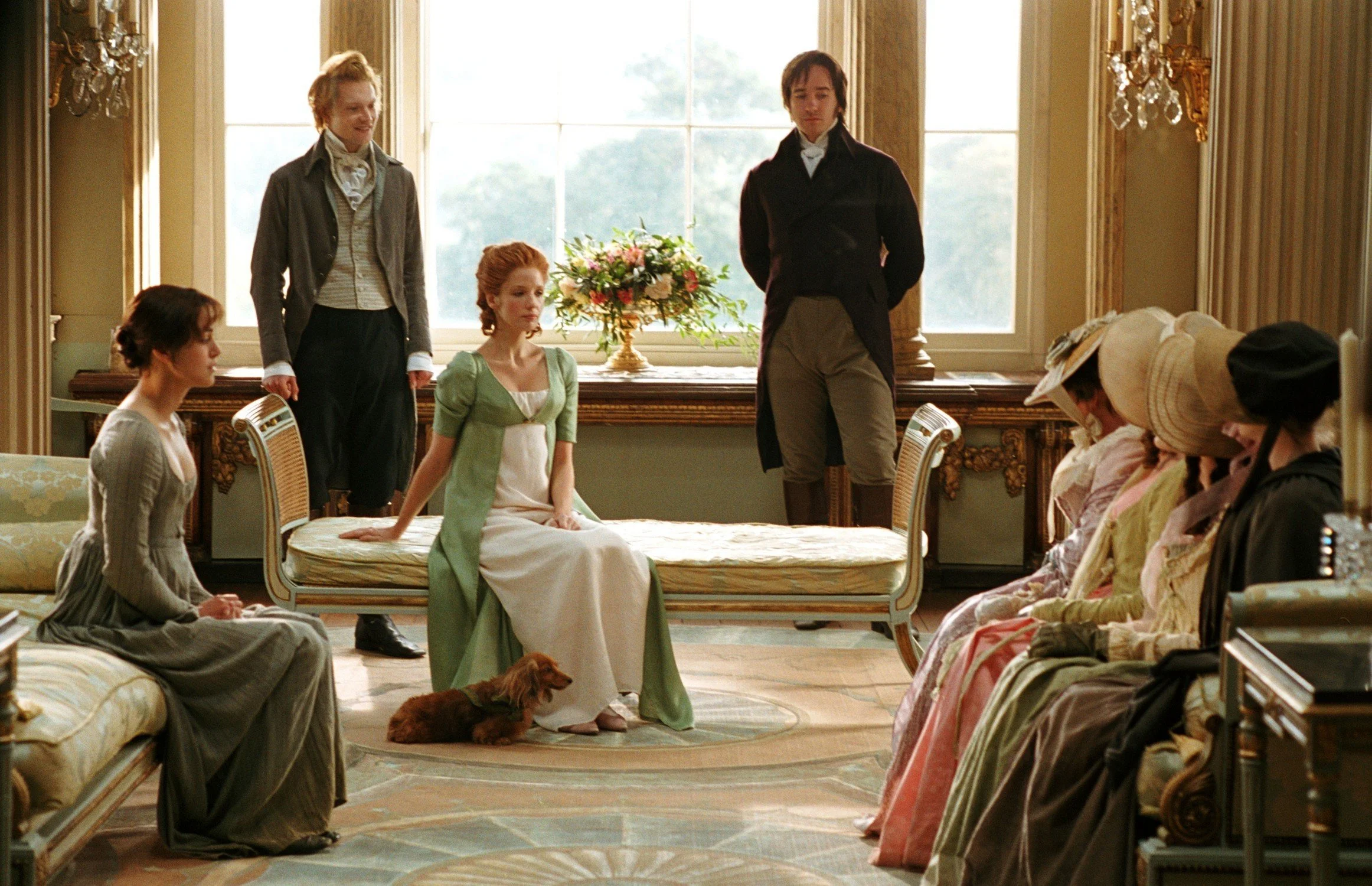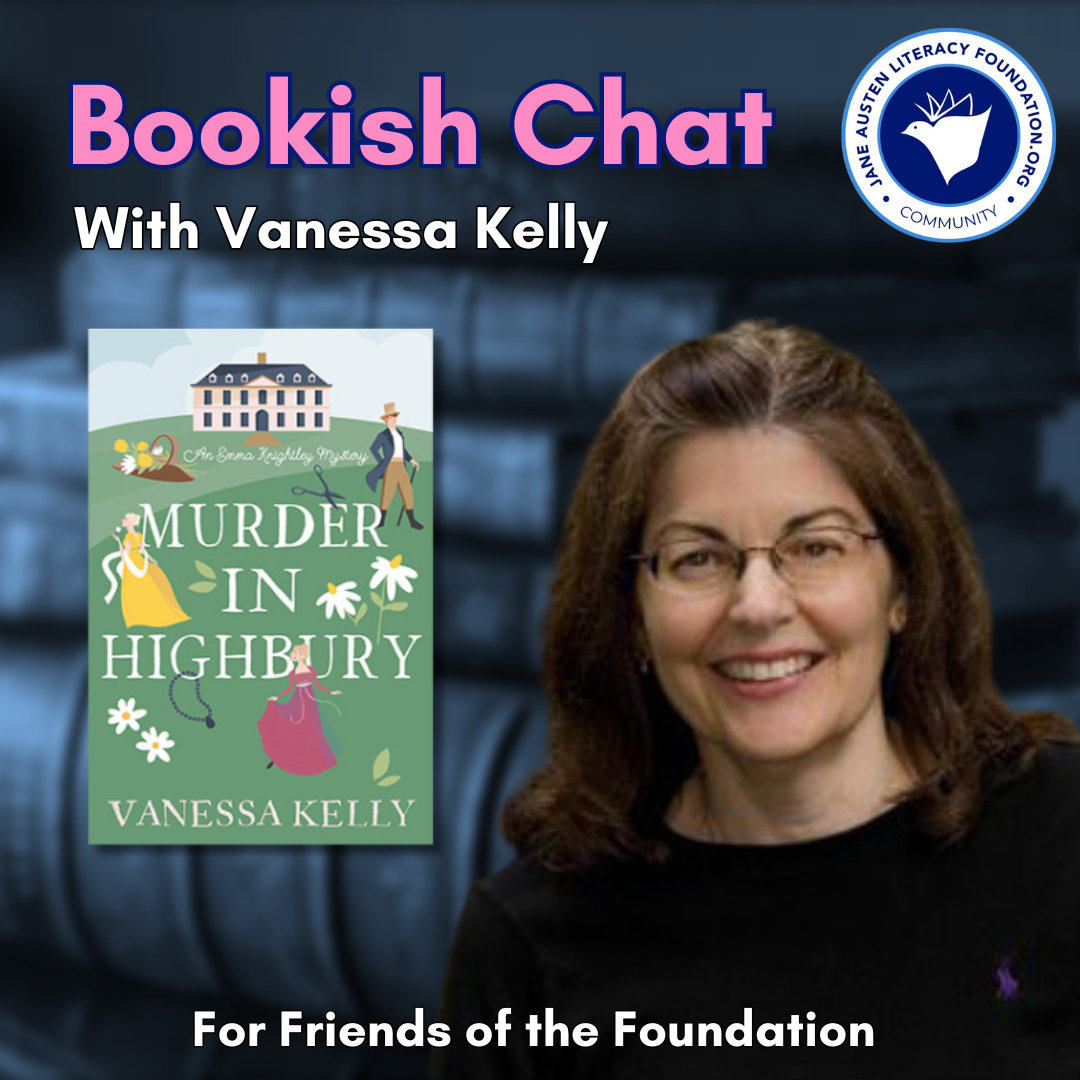“While romance and witty dialogue often take centre stage, education and literacy play a subtle yet significant role in shaping the characters and their lives. ”
Pride & Possibilities Editor, Meghan Ferrara, on the importance of education and literacy that defines Jane's writing.
In Jane Austen’s classic tale, Pride and Prejudice, the heroine, Elizabeth Bennett, debates the definition of an accomplished or educated woman with Caroline Bingley and Mr. Darcy. Caroline informs her audience, “no one can be really esteemed accomplished who does not greatly surpass what is usually met with. A woman must have a thorough knowledge of music, singing, drawing, dancing, and the modern languages, to deserve the word; and besides all this, she must possess a certain something in her air and manner of walking, the tone of her voice, her address and expressions, or the word will be but half-deserved." Mr. Darcy swiftly adds to this description, “and to all this she must yet add something more substantial, in the improvement of her mind by extensive reading." This iconic exchange illustrates the importance of education and literacy that underlies all of Austen’s writing and defines her world.
Elizabeth Bennet at Netherfield, after a lively discussion with Caroline Bingley and Mr Darcy about the accomplishments of women
Jane Austen's novels offer a captivating glimpse into the social dynamics and cultural milieu of the Regency era of early 19th-century England. While romance and witty dialogue often take center stage, education and literacy play a subtle yet significant role in shaping the characters and their lives. Literacy was viewed more as a privilege rather than a right during the time period. Estimates suggest that only around 50% of women and 70% of men in England could read and write. Understanding the educational landscape of Austen's era enhances our appreciation of her works and sheds light on the opportunities and limitations faced by individuals in the early 19th century. The upper class, the landed gentry and aristocracy, enjoyed the benefits of private tutors and governesses for their children. Young men were typically educated at home or sent to prestigious boarding schools like Eton or Harrow. The curriculum emphasized classical studies, including Latin, Greek, and literature, along with mathematics, history, and philosophy. These studies aimed to cultivate not only intellectual prowess but also the refinement and social graces expected of a gentleman. Young ladies received instruction in music, drawing, needlework, dancing, and modern languages from governesses or private tutors. The emphasis of this education was on cultivating social graces, artistic talents, and domestic skills that would make them attractive prospects for marriage.
The middle class, a growing segment of society during the Regency era, had access to a broader range of educational opportunities. Private schools, academies, and boarding schools catered to both boys and girls, offering a curriculum that included languages, mathematics, history, and literature. However, the quality of education varied greatly, and the cost often placed it beyond the reach of many families. While formal education was largely confined to the upper classes, literacy was not entirely out of reach for those of lower social standing. Literacy rates varied across different regions and social groups, but a growing number of people from the working and middle classes were able to read and write. This was partly due to the expansion of Sunday schools (to which Jane made personal contributions) and charity schools, which offered basic instruction in reading and writing to children from less affluent families. Adults might attend evening classes or rely on self-education. Self-improvement was one driving force behind the pursuit of literacy and education in Regency England. The Enlightenment ideals of reason and progress sparked a widespread interest in learning and intellectual development. Many people, regardless of their social standing, sought to expand their knowledge and understanding of the world through reading, attending lectures, and engaging in intellectual discussions.
Reading and writing played a vital role in the lives of educated individuals in Regency England. Books, letters, and journals served as sources of entertainment, information, and personal expression. The spread of literacy was also fueled by the increasing availability of printed materials, including newspapers and pamphlets. Circulating libraries, subscription services that allowed members to borrow books for a fee, became popular and provided access to a wider range of literature for those who could afford it. Private libraries and book clubs also played a significant role in promoting literacy and intellectual engagement at this time. Private libraries were a common feature in the homes of the wealthy, providing access to a wide range of books and periodicals. Book clubs offered a forum for individuals to discuss literature and exchange ideas, fostering a sense of community and intellectual curiosity. These activities reflect the importance of literacy in fostering intellectual growth, social connections, and self-discovery. This growing readership contributed to the flourishing of the publishing industry and the rise of popular literary genres like the novel. The early 19th century witnessed a significant increase in literacy rates, thanks in part to the growing popularity of the novel. They provided a form of entertainment and intellectual stimulation that appealed to a wide audience. As literacy rates rose, more people could access the world of literature and engage in the cultural conversations of the time. Jane Austen's novels played a role in this literary revolution. Her works offered a sophisticated portrayal of social relationships and human nature, attracting a devoted readership among the educated classes. Austen's novels also reflected the importance of literacy and education in Regency society. Her characters often discussed books, engaged in intellectual debates, and used their literacy skills to navigate the complexities of their social world.
Jane Austen was fortunate to be born into a family that valued education. Her father, a clergyman, was well-educated and fostered a love of learning in his children. Austen and her siblings had access to their father's extensive library, which exposed them to a wide range of literary works. Austen's own education was a mix of formal and informal instruction. She attended boarding school for a brief period but was primarily educated at home. Her letters and novels reveal a sharp wit, keen observation skills, and a deep appreciation for language and literature, all testament to the intellectual stimulation she received in her formative years. In later years, her brother, Edward Austen Knight, paid for school mistresses for Chawton and Steventon to teach the poor of the parishes to read and write.
Jane Austen's novels offer a nuanced portrayal of education and literacy in Regency England. Her characters frequently engage in reading and writing activities. They exchange letters, discuss books, and even write their own stories. Through her novels, Austen explores the role of education in shaping individual character, social interactions, and personal aspirations. She highlights the importance of intellectual development, moral integrity, and social responsibility while also acknowledging the limitations of education in overcoming deeply entrenched social hierarchies. Austen’s portrayal of education and literacy in Regency England continues to resonate today, reminding us of the transformative power of learning.
© Meghan Ferrara 2024
Meghan Ferrara is a middle school English teacher from Saint Louis, MO, where she resides with her family. She has her undergraduate degree in French language and literature and graduate degrees in French and Foreign Language Education as well as Reading and Literacy. She is also a certified Reading Specialist. Meghan first fell in love with Jane Austen after seeing the 1995 version of Pride and Prejudice and subsequently reading all of Austen’s novels in middle school. She is so thrilled to be joining the Jane Austen Literacy Foundation as editor of the Pride and Possibilities newsletter and to share her love of all things literacy and Jane Austen!
Our Community: Friends of the Foundation
We’re thrilled to host a special event with bestselling author (and community member) Vanessa Kelly!
Join us as we discuss her exciting new book, Murder in Highbury, the first in a captivating new series. In this fresh take on Regency England, Jane Austen’s beloved Emma Knightley takes on an unexpected role—transforming from clever matchmaker to Highbury’s shrewdest sleuth. This is a perfect event for mystery and Austen fans alike.
Dive into the fascinating story of Agatha Christie's mysterious 11-day disappearance in 1926, reimagined in this captivating historical fiction novel.
Whether you're a longtime fan of Christie or new to her legacy, this is a discussion you won’t want to miss!
Join the Jane Austen Literacy Foundation community to support our literacy projects and join a community of readers. Enjoy our book club and rich program of events. Click below for more information:







